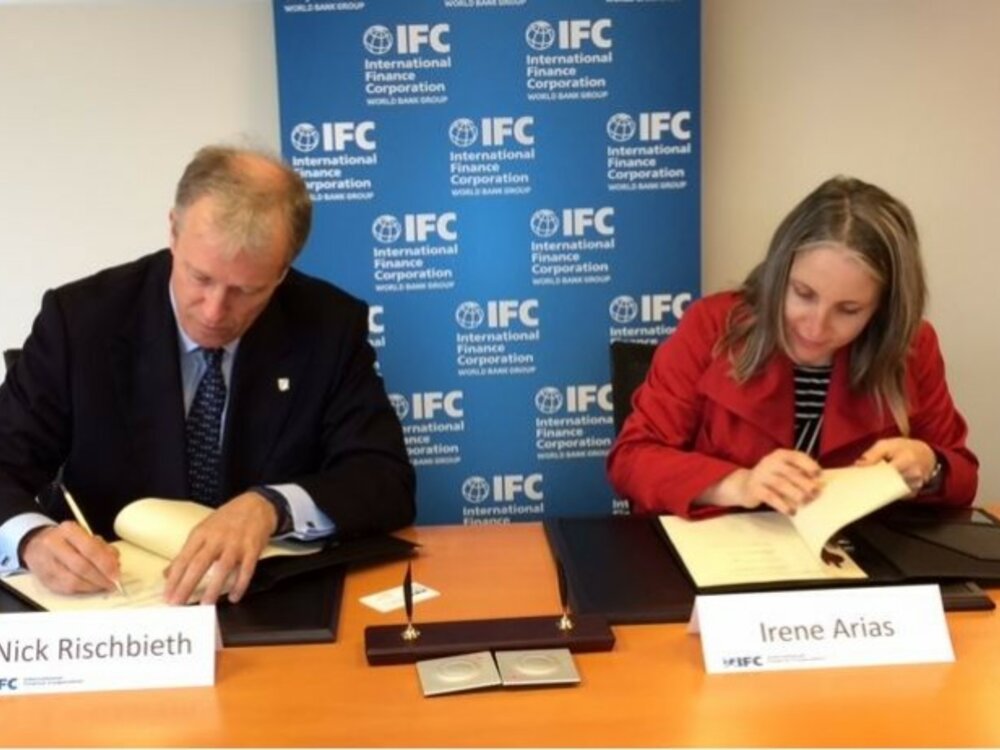CABEI and IFC sign agreement to strengthen the private sector in the region, through projects co-financing

Both institutions foresee that this agreement will promote, among other areas, the creation of new jobs and access to the financial system, within an environmental and social sustainability framework.
Washington, October 17 2014.- The Central American Bank for Economic Integration (CABEI) and the International Finance Corporation (IFC), a member of the World Bank Group, have signed a memorandum of understanding to facilitate the financing of the private sector in the region and to enhance their competitiveness.
The agreement was signed by the Executive President of CABEI, Dr. Nick Rischbieth and the Director of Latin America and the Caribbean of IFC, Irene Arias.
Through this agreement, the two entities will aim to improve the economic development of the private sector, taking into account the presence and importance of CABEI in the region and the knowledge and experience of IFC in major projects worldwide.
In this regard, the Executive President of CABEI, Dr. Nick Rischbieth said "the renewed memorandum reinforces the existing strategic partnership between IFC and CABEI, expanding the scope of the alliance and presenting a framework for collaborative activities in order to achieve common goals more effectively, for example through the mobilization of capital for the benefit of investment in the productive sectors."
He added that "the objective of the new mechanism is to support private sector development in Central America, as well as to promote a joint action for the co-financing of common interventions."
"There is a significant need for investment in infrastructure in Central America and support for key sectors of the regional economy, such as the agricultural industry and financial markets," Arias said. "CABEI and IFC are well positioned to promote the participation of the private sector, complementing the public works that boost economic development in the region and the welfare of its citizens."




